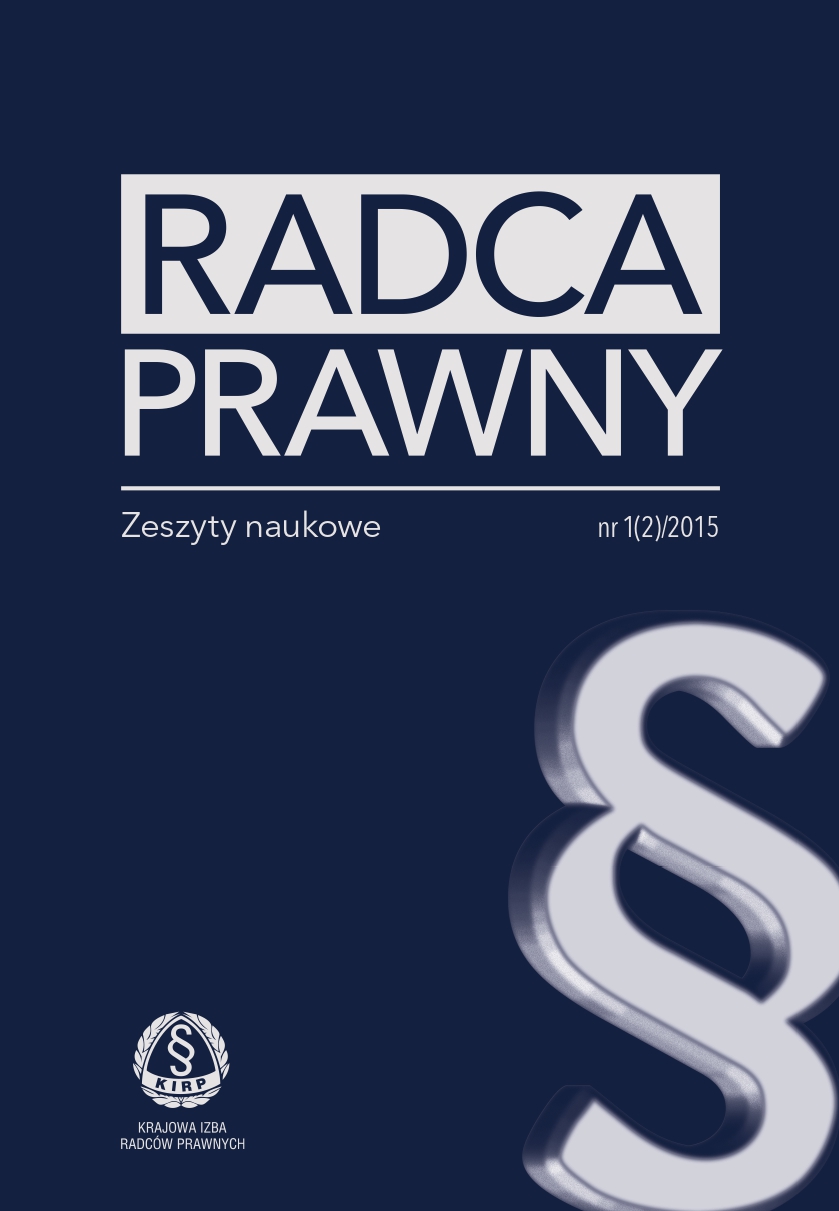Przymus adwokacko-radcowski – uwagi o stanie obecnym i perspektywach zmian
Compulsory legal representation: Remarks on the current state of affairs and the prospects for changes
Author(s): Joanna BodioSubject(s): Constitutional Law, Civil Law
Published by: Krajowa Izba Radców Prawnych
Keywords: compulsory legal representation; capacity to act in legal proceedings; legal representation
Summary/Abstract: The principle of compulsory legal representation by an advocate has functioned – with some intervals – in the Code of Civil Procedure since the pre-war period. Compulsory legal representation (by an advocate or a legal adviser) involves mandatory substitution for parties before the courts by so-called professional representatives. In civil proceedings, by rule, the assistance of a lawyer is optional, with the exception of proceedings before the Supreme Court, and including procedural steps related to said proceedings taken before the courts of lower instance (an absolute requirement of legal representation by an advocate or a legal adviser). Exemptions from the principle of compulsory legal representation occur when a party to the proceedings, its corporate body, statutory representative or proxy, is a judge, public prosecutor, notary public, professor of law, or habilitated doctor, as well as when the party, its corporate body or its statutory representative is an advocate, a legal adviser, or Attorney General of the Treasury (art. 87¹(2) of the Code of Civil Procedure). A point of contention in the legal doctrine is whether a person excluded from the principle of compulsory legal representation must be active it a capacity indicated in Art. 87¹(2) of the Code of Civil Procedure, or whether having the appropriate qualifications for doing so is sufficient. The author reflects on these issues and voices her opinion, while presenting the European legislation, the historical background, present situation, and future prospects for change.
Journal: Radca Prawny. Zeszyty Naukowe
- Issue Year: 2015
- Issue No: 1
- Page Range: 68-89
- Page Count: 22
- Language: Polish

